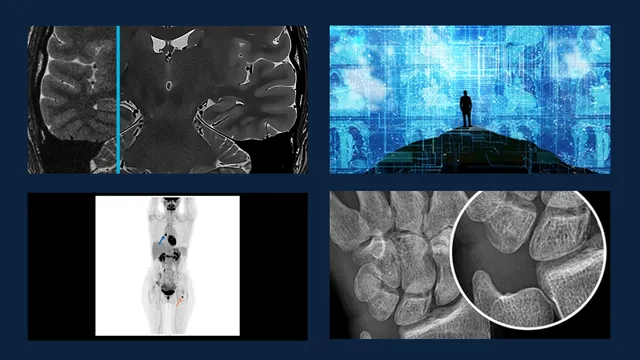News Desk, Kolkata : In the rapidly evolving landscape of healthcare, Artificial Intelligence (AI) has emerged as a transformative force, particularly in the realm of medical imaging. Recent advancements in AI and deep learning technologies are not just augmenting diagnostic capabilities but are also poised to redefine the entire patient care experience. As we delve into the intricate web of innovation, we find ourselves at the intersection of cutting-edge technology and compassionate healthcare.
Imagine a world where medical diagnoses are swift, precise, and universally accessible. This vision is no longer confined to the realm of science fiction, thanks to the revolutionary strides made by AI in medical imaging. Recent breakthroughs have propelled us into an era where X-ray imaging is not just a static snapshot but a dynamic canvas, meticulously analyzed by AI algorithms. This isn’t merely about enhancing the clarity of images; it’s about unlocking a wealth of information hidden within medical scans.
One of the most promising applications of AI in medical imaging lies in predicting hip fractures with unprecedented accuracy. Traditionally, identifying and assessing hip fractures has been a challenging task, often requiring multiple scans and expert interpretation. Enter AI, armed with deep learning capabilities, it analyzes subtle patterns in bone structures, enabling early detection and prediction of potential fractures. This not only expedites the diagnosis process but also minimizes the discomfort and uncertainty for patients.
Venturing further into the landscape of AI-powered medical imaging, the spotlight shifts to the realm of respiratory health. The identification of lung nodules, indicative of conditions such as lung cancer, has long been a critical aspect of diagnostic radiology. AI algorithms, with their ability to sift through vast datasets and detect minute anomalies, are proving to be invaluable in this domain. The integration of deep learning models into the interpretation of lung imaging not only enhances accuracy but also facilitates timely interventions, potentially saving lives.
The transformative impact of AI in medical imaging extends beyond the confines of individual diagnoses. It is a catalyst for bridging health equity gaps on a global scale. In regions where access to specialized healthcare is limited, AI-powered imaging becomes a beacon of hope. Portable devices equipped with AI algorithms can assist healthcare providers in remote areas, bringing expert-level diagnostics to the doorstep of underserved communities. This democratization of medical expertise has the potential to revolutionize healthcare delivery, ensuring that quality diagnostic services are not bound by geographical constraints.
As we navigate the evolving landscape of AI in healthcare, it becomes evident that the future of patient care is undergoing a paradigm shift. Beyond the realms of diagnostics, AI is contributing to personalized treatment plans, tailoring interventions based on individual patient profiles. This holistic approach, fueled by data-driven insights, empowers healthcare professionals to provide more targeted and effective care.
The symbiotic relationship between AI and medical imaging is not without its challenges. Ethical considerations, data privacy concerns, and the need for robust regulatory frameworks are integral aspects of this transformative journey. Striking the right balance between innovation and ethical safeguards is imperative to ensure the responsible and equitable deployment of AI technologies in healthcare.
Looking ahead, the trajectory of AI in medical imaging holds the promise of even greater milestones. Integrating AI into the fabric of healthcare systems globally will require collaborative efforts from technology innovators, healthcare providers, and policymakers. The narrative of AI revolutionizing medical imaging is not just a glimpse into the future; it is a present reality shaping the contours of healthcare delivery.
In conclusion, the rise of AI and deep learning in medical imaging is not just a technological marvel but a testament to the potential of human ingenuity in advancing healthcare. It’s a narrative where pixels on a screen transcend their visual representation, becoming gateways to insights that redefine diagnoses, treatment plans, and ultimately, the patient experience. As we stand at the cusp of this transformative journey, the fusion of AI and medical imaging heralds a new era of healthcare – one where precision meets compassion, and innovation paves the way for a healthier, more equitable world.
DISCLAIMER
Our news media denounces any form of bias and disapproves of sensationalism. The disseminated news is entirely educational and aimed at social awareness. Our media maintains absolute impartiality, adhering solely to the purpose of education and social consciousness.


